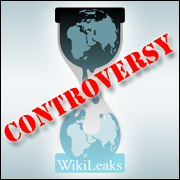
Because I’ve spent most of my working life writing about technology, people expect me to be among the first to adopt every new device and application that hits the market. So, I often find myself explaining that it’s because I follow tech trends closely that I’m seldom an early adopter.
I know, for instance, that the first generation of any tech product is likely to be followed very soon by a new version with more features, fewer flaws and a lower price tag. By waiting a generation or two, you invariably get a better deal.
Most people appreciate my position on adopting new technology, once I’ve clarified it. Still, I get puzzled looks when I tell someone that I’m not one of the 500-million-plus members of Facebook.
I fully understand the disbelief. These days, anyone who’s not on Facebook is likely to be labeled a “laggard.” But I have sound reasons for not rushing to join the world’s largest social network.
I haven’t joined Facebook because I look at social networking platforms the same way I view any technology — as tools to meet my specific needs. And Facebook doesn’t do what I need a social networking platform to do — at least, not without exposing me to what I consider an unacceptable level of risk.
Negative Risk-Reward Ratio
This negative risk-reward ratio became apparent to me again last week, when Facebook, MySpace and Google all admitted to still being less than diligent in protecting the personal information of people who use their social networks.
Google seems to have quashed the issue related to its Buzz social networking service by agreeing to contribute US$8.5 million to fund Internet privacy education as part of the settlement of a class-action lawsuit. The suit was filed after some Google Buzz users learned that Google was using names from their Gmail accounts to populate their lists of Buzz “followers” without asking permission.
Facebook and MySpace were found to be collecting information — such as user IDs — that could be used to ascertain individuals’ real names. Facebook also admitted that some of the companies that developed applications for its site were pulling this type of information and selling it to email marketers, all without Facebook’s knowledge.
On the surface, all of these actions seem relatively benign, but I believe it’s time for users to start looking beyond the surface when it comes to issues of Internet privacy, and start looking for ways to protect themselves.
First, consider Google’s misuse of names from users’ Gmail accounts. Those accounts obviously contain names of people the users know — friends, family, co-workers, etc. It should be left to the user — not Google — to decide what type of information their contacts receive from them.
A Virtual Tattoo
As a character in “The Social Network” — the movie about Facebook’s origins — says, “the Internet is written in ink.” The implication is that once something is posted it’s very difficult — if not impossible — to remove.
Most social network users realize that. They also know that if the Internet is written in ink, then creating a social networking profile is akin to getting a tattoo. It’s a permanent piece of art that tells the world something about you. So, you want to be extremely careful in deciding what it says, and you may want make sure it remains hidden when you go to work.
At this point in the social networking game, users expect to be able to protect themselves from sharing potentially embarrassing information with the entire world by using the privacy settings that social network operators now tell you about.
They didn’t make those options known — and some didn’t even have them — until they started hearing complaints about the damage some social network users had done to their reputations or careers by posting very personal information on sites that they thought would be accessed only by a small circle of invited guests.
By unilaterally turning Gmail contacts into faux Buzz followers, Google denied Buzz users the right to invoke those privacy settings and, in effect, exposed their tattoos. Fortunately, it appears no one was harmed by Google’s actions — possibly because of the small number of Buzz users — but the potential for danger was very real.
Facebook Can’t Guarantee Privacy
The sheer number of people using Facebook makes its seeming lack of concern for user privacy even more frightening. Facebook says it has chastised the vendors who were caught selling user IDs — even suspending some of them from the site.
That sounds nice, but with more than 500,000 applications currently available on the site, there’s no way for Facebook to guarantee nothing like this will happen again. It’s quite possible that someone could slip through whatever security net Facebook creates and not only start pulling user IDs, but also begin planting code that could take over users’ computers to commit nefarious acts up to and including identity theft.
None of this is to suggest that I’m against social networking. As I stated previously, I have examined the technology and chosen platforms that fit my specific needs. I’m a longtime member of LinkedIn, which I use to keep in contact with former business associates. I like this site because its users conduct themselves as they would in the workplace.
My Personal Privacy Policy
I also use Twitter as an adjunct to LinkedIn, primarily for exchanging links to articles and other information that I find useful for work. Having this source of information helps me pinpoint things I should be reading — while avoiding a lot of extraneous stuff — because it’s been vetted by people with similar interests. I consider this a valuable service, and I hope my small band of Twitter followers views the links I post in the same vein.
There is the potential for people to expose their virtual tattoos on Twitter, but I avoid most of that by being extremely selective about who I choose to follow. I also minimize the possibility of having my personal information filched by limiting my list of followers to people I’ve previously had contact with in the real world.
I admit that my approach to social networking may seem extreme. But it also seems clear to me that the companies operating these networks are much more interested in figuring out how to create revenue streams than they are in protecting users’ privacy. So I think it’s time for users to start creating their own privacy policies.
TechNewsWorld columnist Sidney Hill has been writing about business and technology trends for more than two decades. In addition to his work as a freelance journalist, he operates an independent marketing communications consulting firm. You can connect with Hill through his website.






















































I was once like you, but even to a worse extent since my background also always me to create a facebook website from my programming background, I deemed it inappropriate.
Once I joined I was like wow , I missed years of things my family was saying about me. Its ok not to be an early adopter, but when its been adopted by nearly everyone, your not doing yourself any favors! Then you’ll be the one giving others puzzled looks after.
Five minutes after I set up my first account I got a DOS attack that was traced to Facebook. Then when they said they got it fixed, my second account was "terminated" for using an "alias", which I have seen a good 80% of the people on FB do, WHEN it was my actual name. I had a friend that got a new eMail address and changed it in her account. They closed her account for suspected tampering. All she did was change her eMail address. It took two months of us yelling, eMail after eMail and jumping through their inoperable hoops to finally get what their automated system should have done to do and get her back up and running. Like all these situations, it’s cake to sign up, but to fix problems or cancel it’s like trying to gain your freedom from a third world dictatorship.
I have a full and wonderful life with many friends and associates. I don’t need a fake cyber-social network to feel like a real accomplished human being.